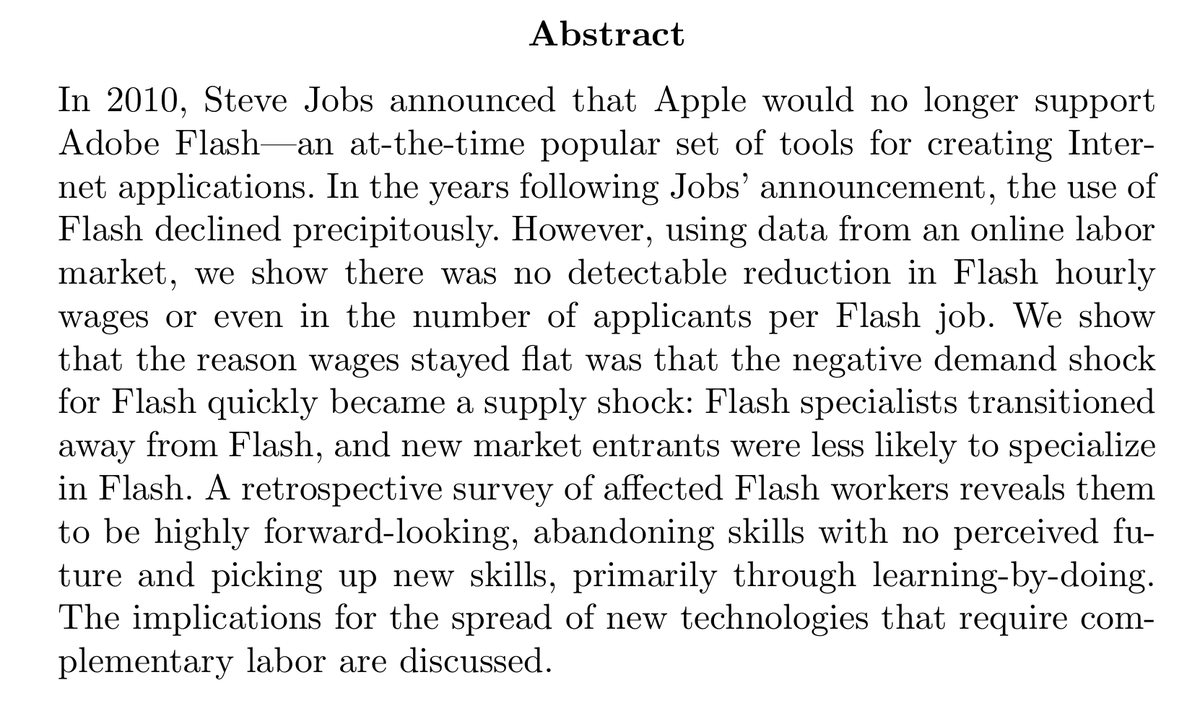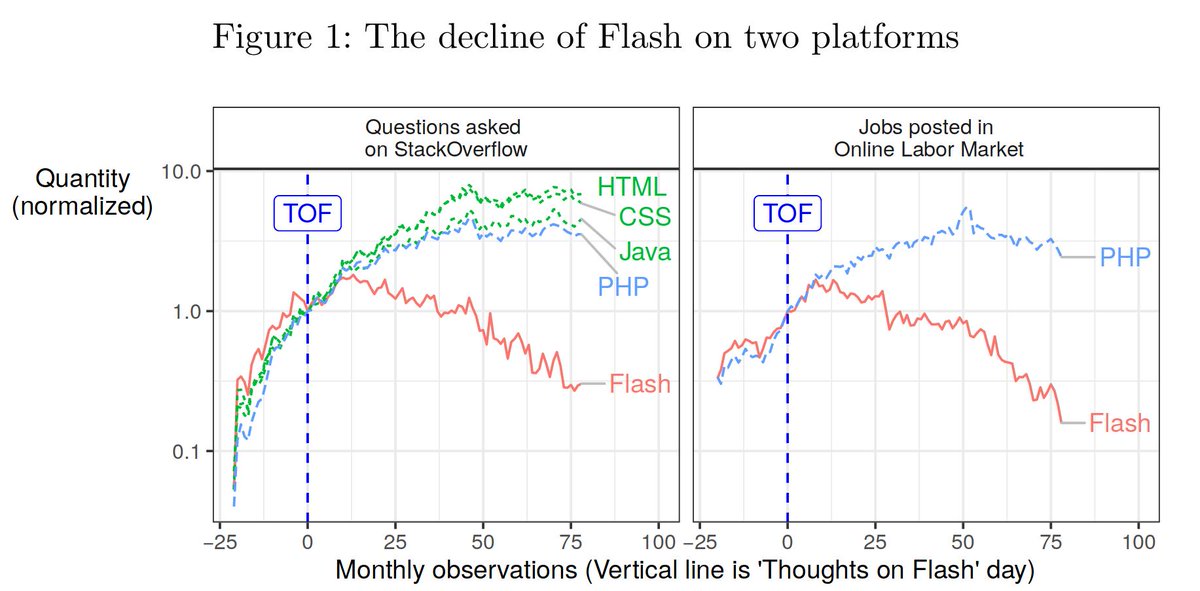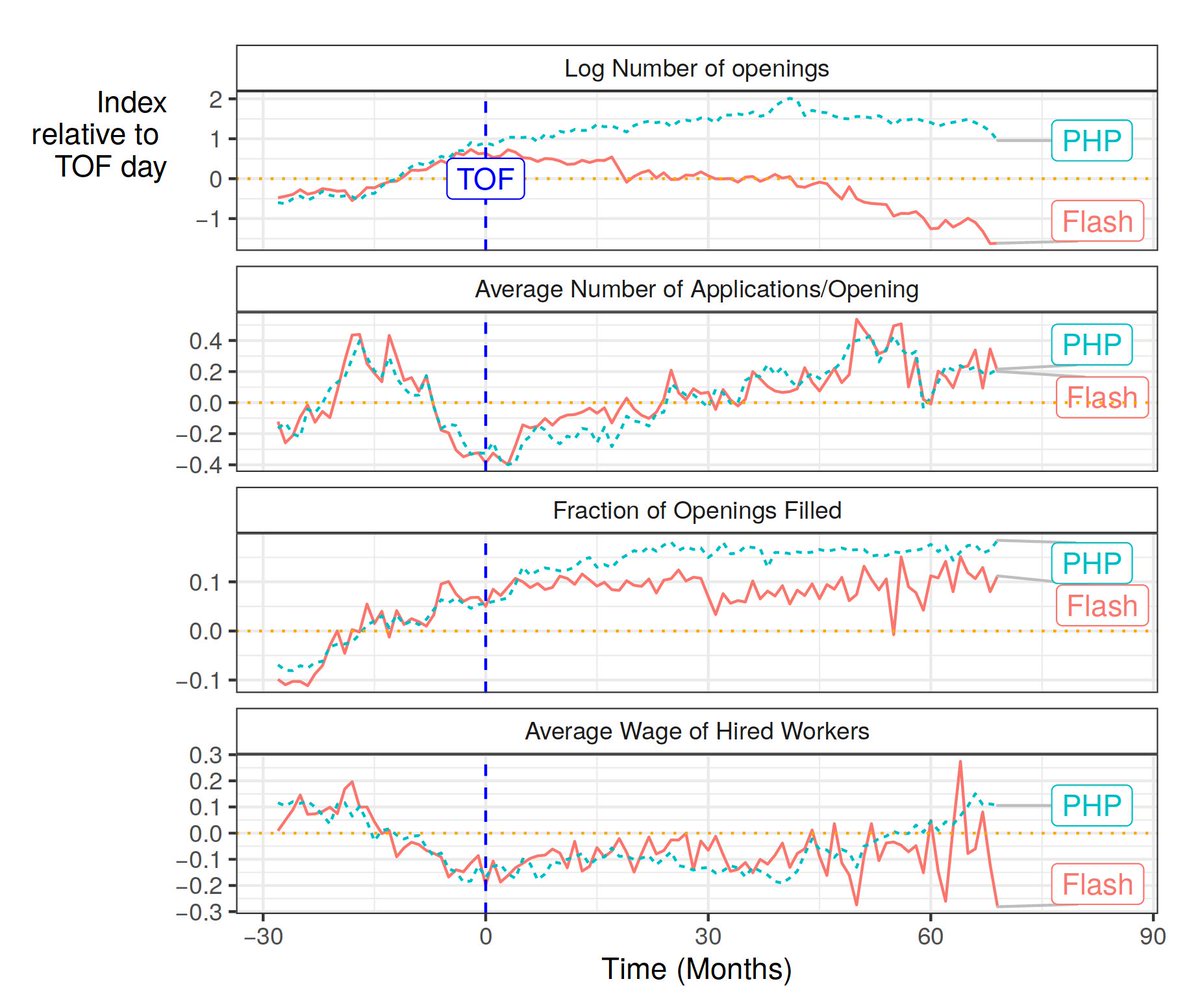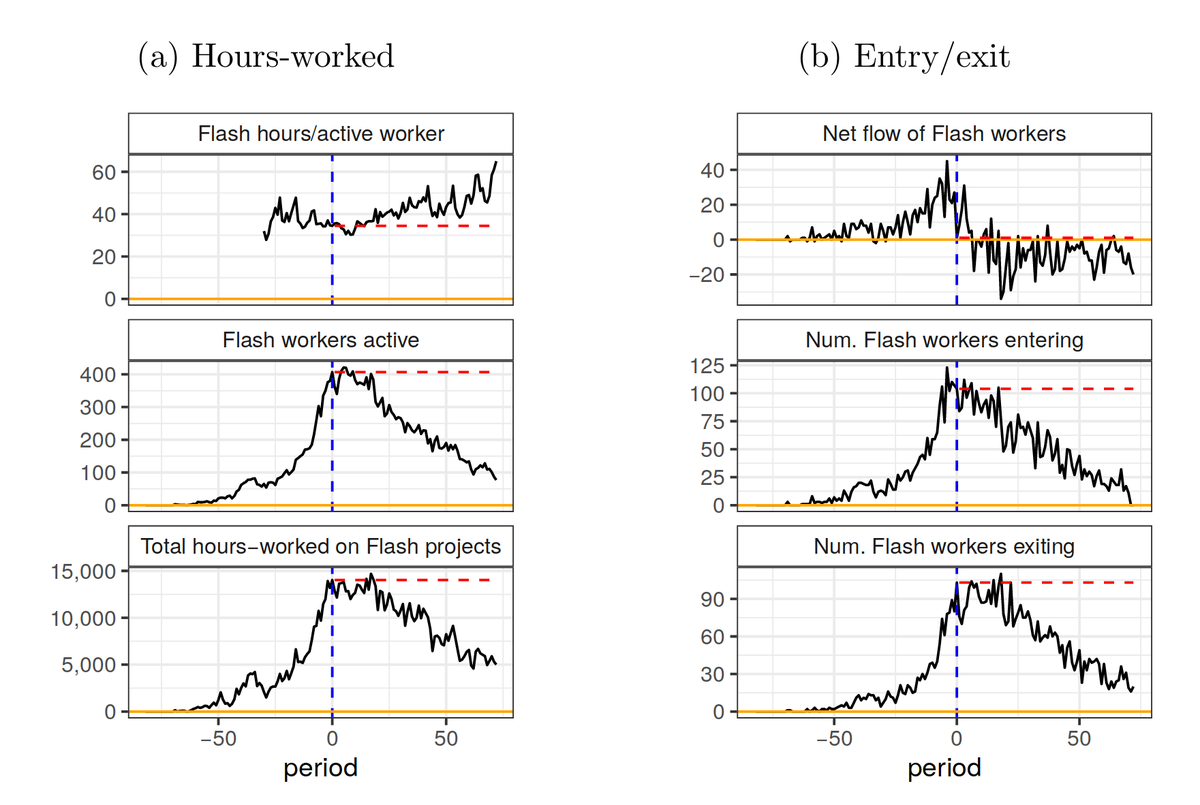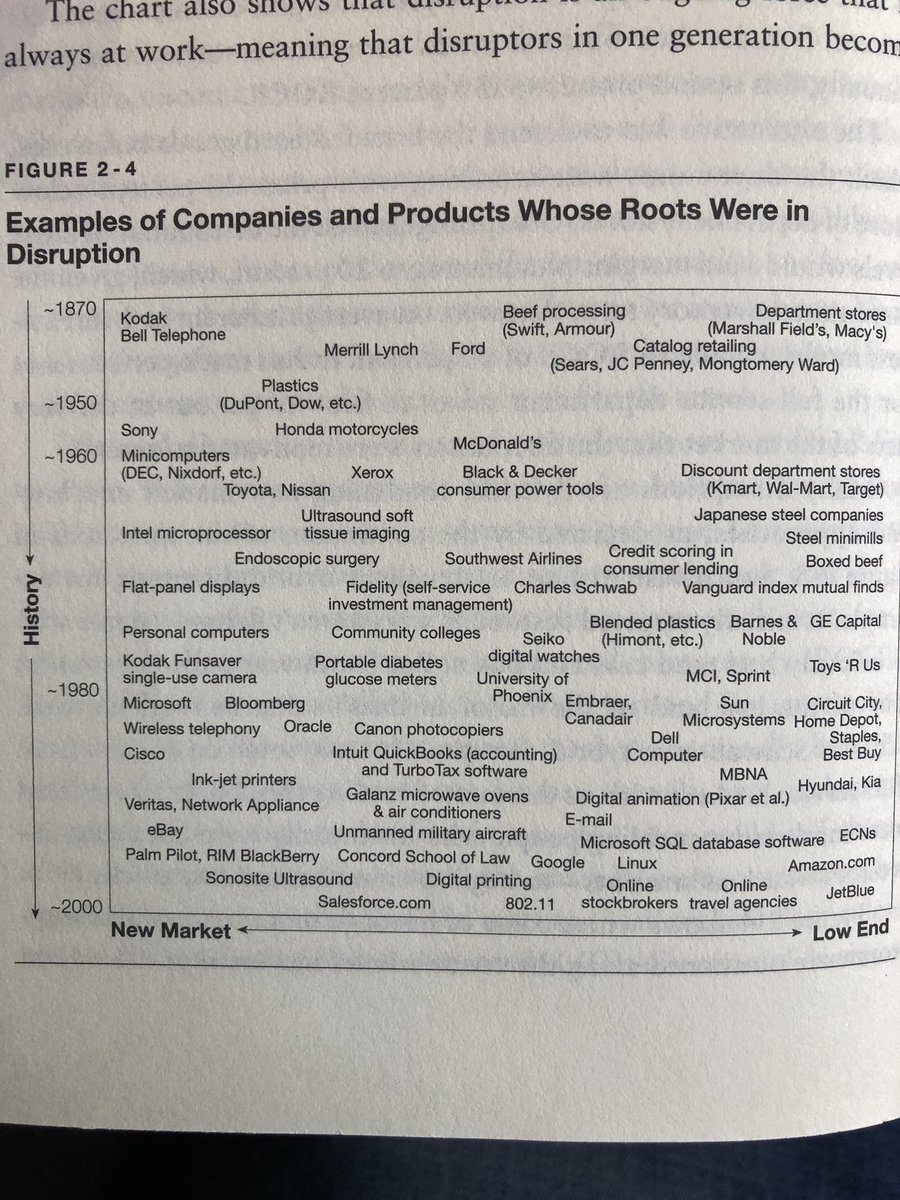⚡️🧠Impact = Environment x Skill
A framework for making big career decisions by @iambangaly (Reforge Partner, Former Instacart, Instagram)
Full post -> https://t.co/dU0l7e0BWR
🧵 Thread...
As a result, Bangaly got a lot of reps guiding this type of decision and created a framework to help with it...
The goal is not to try and boil this type of decision down to a spreadsheet of inputs that spits out the answer, but rather it helps with 4 things...
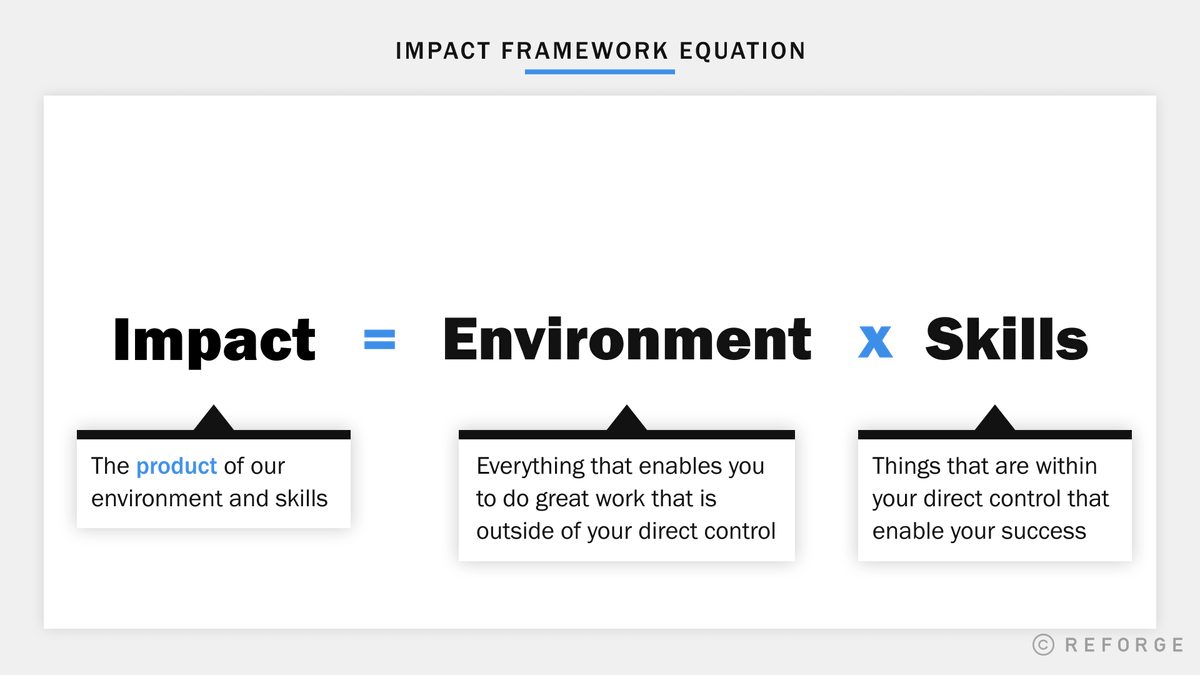
- Identify individual variables that are inputs into the decision.
- Evaluate each individual variable in a structured way.
- Understand the relationship between each variable.
- Narrow the decision down to the most important variable
...
- Choosing to work on the shiny object
- Thinking you just need to improve your skills to progress
- Short-term thinking
- Solving only for brand
- Mixing perception and truth
a. Impact fuels career progression. It is the thing you need to solve for.
b. Impact is the product of Environment and Skills
c. If our skills are great, but the environment is wrong (or vice versa), then we aren't set up for success.
a. Your manager
b. Resources
c. Scope
d. Team
e. Compensation
f. Company culture
a. Communication
b. Influence/Leadership
c. Strategic Thinking
d. Execution
0 = Major Bottleneck
1 = Neutral
2 = Major Amplifier
...
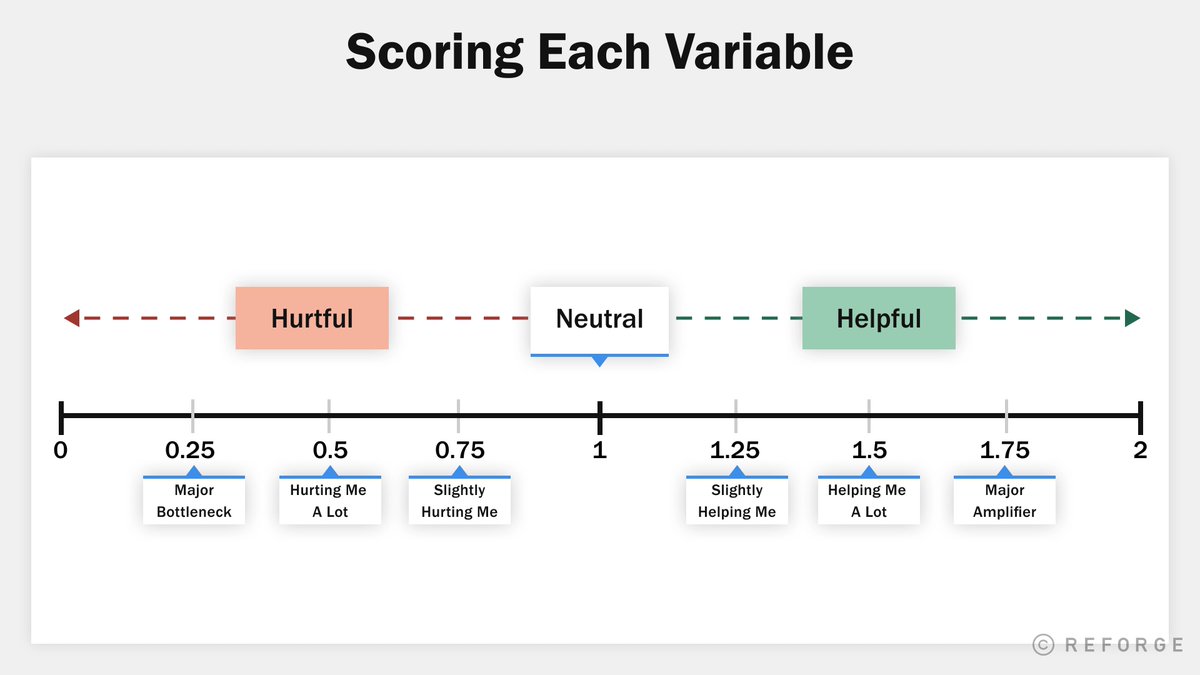
a. Identify the variable that matters most
b. Evaluate your ability to change each variable
c. Understand the time horizon it will take to change each variable.
https://t.co/iN0M6eCjPI
Or learn more from Bangaly as a Reforge Member -> https://t.co/uzfVcrSzOy
More from Tech
I think about this a lot, both in IT and civil infrastructure. It looks so trivial to “fix” from the outside. In fact, it is incredibly draining to do the entirely crushing work of real policy changes internally. It’s harder than drafting a blank page of how the world should be.
I’m at a sort of career crisis point. In my job before, three people could contain the entire complexity of a nation-wide company’s IT infrastructure in their head.
Once you move above that mark, it becomes exponentially, far and away beyond anything I dreamed, more difficult.
And I look at candidates and know-everything’s who think it’s all so easy. Or, people who think we could burn it down with no losses and start over.
God I wish I lived in that world of triviality. In moments, I find myself regretting leaving that place of self-directed autonomy.
For ten years I knew I could build something and see results that same day. Now I’m adjusting to building something in my mind in one day, and it taking a year to do the due-diligence and edge cases and documentation and familiarization and roll-out.
That’s the hard work. It’s not technical. It’s not becoming a rockstar to peers.
These people look at me and just see another self-important idiot in Security who thinks they understand the system others live. Who thinks “bad” designs were made for no reason.
Who wasn’t there.
The tragedy of revolutionaries is they design a utopia by a river but discover the impure city they razed was on stilts for a reason.
— SwiftOnSecurity (@SwiftOnSecurity) June 19, 2016
I’m at a sort of career crisis point. In my job before, three people could contain the entire complexity of a nation-wide company’s IT infrastructure in their head.
Once you move above that mark, it becomes exponentially, far and away beyond anything I dreamed, more difficult.
And I look at candidates and know-everything’s who think it’s all so easy. Or, people who think we could burn it down with no losses and start over.
God I wish I lived in that world of triviality. In moments, I find myself regretting leaving that place of self-directed autonomy.
For ten years I knew I could build something and see results that same day. Now I’m adjusting to building something in my mind in one day, and it taking a year to do the due-diligence and edge cases and documentation and familiarization and roll-out.
That’s the hard work. It’s not technical. It’s not becoming a rockstar to peers.
These people look at me and just see another self-important idiot in Security who thinks they understand the system others live. Who thinks “bad” designs were made for no reason.
Who wasn’t there.






